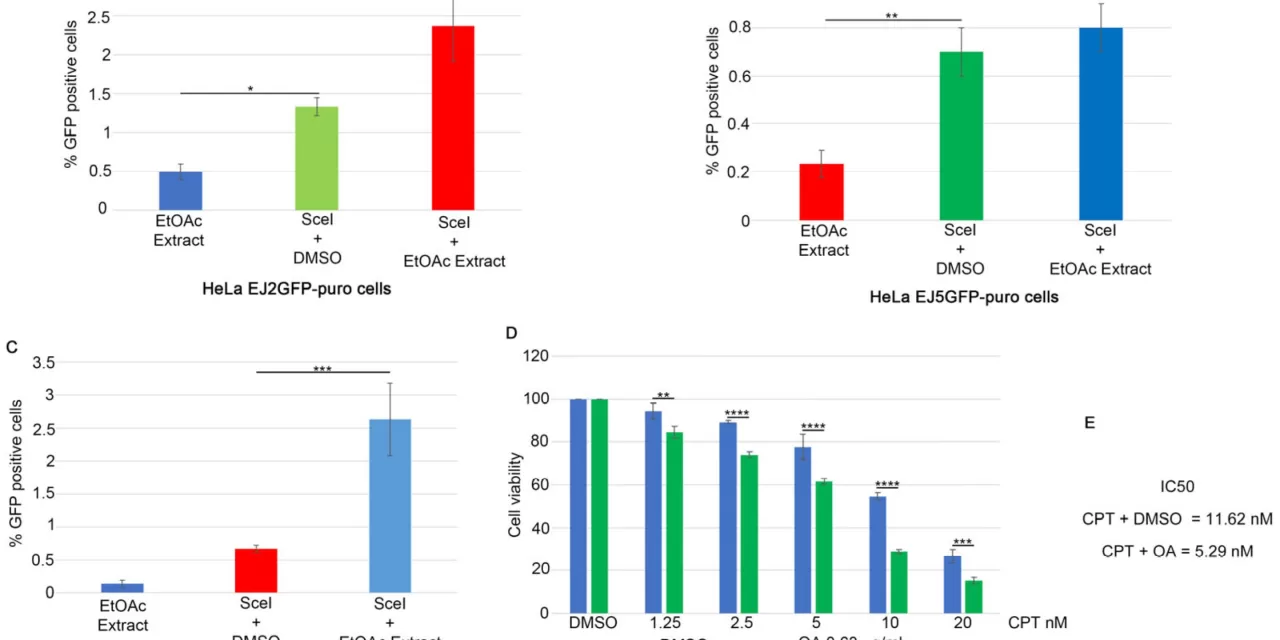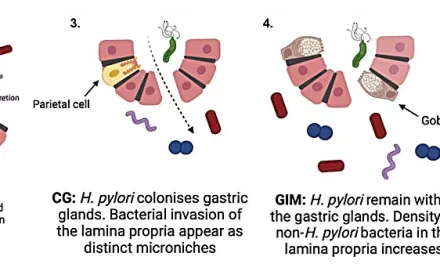December 31, 2024 – A groundbreaking study has revealed that oleanolic acid, a natural compound derived from grape pomace, may enhance the effectiveness of chemotherapy while reducing the required drug dosage. Researchers have identified a promising role for oleanolic acid in modulating the DNA damage response to camptothecin, a chemotherapeutic agent, potentially leading to more effective cancer treatments with fewer side effects.
The study, titled “Oleanolic Acid Modulates DNA Damage Response to Camptothecin Increasing Cancer Cell Death,” was published last week in the International Journal of Molecular Sciences. It highlights how the combination of oleanolic acid with camptothecin could improve cancer cell death while sparing healthy cells, making chemotherapy more tolerable for patients.
Led by Prof. Antonio Giordano, M.D., Ph.D., Director of the Sbarro Institute for Cancer Research and Molecular Medicine at Temple University and Professor of Pathology at the University of Siena, the research team includes co-author Dr. Luigi Alfano from the Istituto Nazionale Tumori Fondazione Pascale in Naples, Italy. The study is part of an innovative research program exploring the therapeutic potential of natural extracts in cancer treatment.
Using Nuclear Magnetic Resonance (NMR), researchers identified oleanolic acid in grape pomace extract. In laboratory experiments, the compound demonstrated a synergistic effect with camptothecin, reducing the amount of the chemotherapeutic drug needed to achieve effective cancer cell death. Importantly, oleanolic acid was found to be non-toxic to healthy cells at the tested concentrations.
“This discovery emphasizes the potential of natural compounds as key players in advancing cancer therapies,” said Dr. Alfano.
Prof. Giordano added, “By integrating oleanolic acid, we could lower the required doses of chemotherapy drugs like camptothecin. This could significantly reduce the side effects of cancer treatments, improving patient quality of life.”
The findings build on SHRO’s history of impactful research in molecular biology and precision medicine, including studies on capsaicin’s role in mesothelioma treatment and genetic targets for reducing blood vessel growth in glioblastoma tumors.
The study underscores the potential of natural extracts as a source of novel cancer therapies. Future research may focus on clinical trials to evaluate the safety and efficacy of this approach in patients.
For further details, the study is available in the International Journal of Molecular Sciences: Giulio Mazzarotti et al., DOI: 10.3390/ijms252413475.












